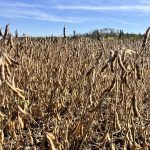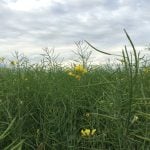
Tag Archives Agronomy

Time to be honest about hemp, experts say
Sector aims to move past early “hemp evangelism,” told the crop’s future lies in honest agronomy, not exaggerated claims

MANITOBA AG DAYS 2026: Stacked equipment category expected at Innovation Showcase
Ten of 28 Innovation Showcase entries at Manitoba Ag Days 2026 this coming January are in the equipment category

Manitoba canola embattled by verticillium
Verticillium stripe pressure has been growing in the province and growers have precious few tools to protect their crops from disease

Survey looks to gauge whether producers are aware of free agronomic tools and where producer funds are going

Lasers and artificial intelligence: welcome to high-tech weed control
Energy-based weed killing technology is emerging in a landscape where herbicide resistant weeds have become a persistant and growing problem for Canadian farmers.

Canola council agronomists had big impact on sector
Editorial: A tighter focus on supply and demand development will reap benefits but will cost canola growers a valuable human resource

Soil moisture, more timely application may help limit fall fertilizer loss
Researchers in Western Canada consider ways to keep fall nitrogen fertilizer in place and available for the next crop

Precision 4R cuts farm greenhouse gas emissions
Lower areas in your field tend to emit more greenhouse gas, research shows that precision 4R nutrient stewardship practices can help mute the trend

Powdery scab a puzzling potato problem
Biosecurity helps avoid powdery scab infections in Manitoba potato fields, like avoiding the use of manure from livestock that ate infected potatoes

Cutting the noise on integrated weed management
A farm can’t chase every integrated weed management practice out there; which ones are most important, according to the experts?


